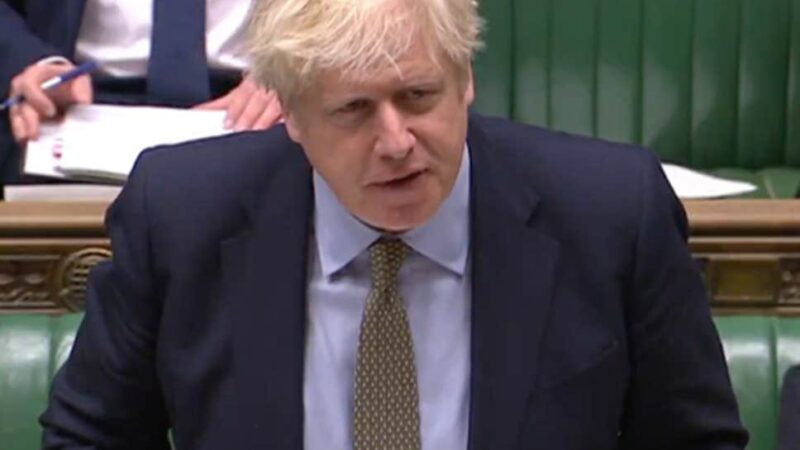On the lost art of 'fessing up.

MPs are failing to make corrections to the official record when they get things wrong, an independent fact checking charity has warned.
In a letter to senior politicians including the Speaker and the Chair of the Procedure Committee, Full Fact has called for an improved system of handling parliamentary corrections.
The intervention comes after a series of high-profile cases of ‘untruths’ being told by ministers and MPs.
Speaker Sir Lindsay Hoyle told MPs earlier this month that they “must take responsibility for correcting the record if a mistake has been made”, after the PM refused to apologise for wrongly stating Labour voted against a pay rise for NHS workers.
Only last month the PM claimed the government hadn’t cut Transport for the North funding, when it had in fact been cut by 40%. He refused to correct the record.
Last May, Keir Starmer asked the Prime Minister why the government’s advice up to 12 March was that it was ‘unlikely’ that care home residents would be infected with coronavirus. As City AM reported, Johnson denied this was ever the case, despite an official document from 12 February saying “it is therefore very unlikely that anyone receiving care in a care home or the community will ever become infected”.
Analysis from the London School of Economics (LSE) showed more than 22,000 people care homes may have died from Covid-19.
Johnson also misleadingly suggested senior medical experts signed off last May’s switch to ‘stay alert’ messaging, instead of ‘stay at home’.
Flawed system
Only government ministers can currently make corrections to the official record. All other MPs, including senior opposition politicians, have to make verbal corrections during a debate, or raise a Point of Order. This means that even when MPs try to correct the record, the official record of their mistake is still wrong.
Fact checkers have previously highlighted examples of government ministers who can correct the official record, but ignore requests to do so.
In its letter, Full Fact calls for a simple system that removes partisan concerns from the process, and encourages a culture of accuracy and honesty at Parliament.
Our interventions with politicians have too often gone unresolved. It is of particular concern that ministers, to whom the public looks for accurate information now more than ever, have been so unwilling to correct inaccurate or misleading statements.
In 2020 we made 20 requests for corrections or clarifications from ministers and received no full response to any of our inquiries. Twelve of these were about coronavirus. Eleven of all our requests regarded statements from the prime minister, of which six related to coronavirus. Only once did a minister – in this case the health secretary Matt Hancock – attempt to clarify inaccurate remarks about suicide rates during the pandemic.
However, Mr Hancock’s second statement was confused and no link appears alongside the original inaccuracy in Hansard, meaning people may read the inaccurate statement in isolation.
Last year, we recommended that the efficacy of the system for ministerial corrections be investigated – the value of such a review has become even more apparent. We also made 16 requests of shadow ministers and other MPs, with eight fully resolved. Most of the instances where corrections were made involved statements issued on social media, which were deleted or clarified.
And, despite there being no official system for non-ministers to correct Hansard, we also saw two MPs ensure that inaccurate statements were corrected; one by raising a point of order in the House, and another in a later speech on the same topic. However, these corrections are not linked to the original statement. There is clearly a need for non-ministers to be able to correct the official record and we once again recommend that this be addressed by the relevant House authorities.
All MPs should be able to correct the record when they make mistakes, the independent fact checkers say.
Decline in honesty
Will Moy, chief executive of Full Fact, said: “As the Speaker told MPs last week, ‘it is not dishonourable to make a mistake, but to seek to avoid admitting one is a different matter’.
“Too few politicians are currently able, or willing, to correct the official record when they get things wrong. The public deserves better than a system that pretends mistakes don’t happen.
“Having access to good, reliable information has never been more important than during the current health emergency. And a corrections process that allows politicians to own their mistakes is part of that.
He added: “MPs often talk about rebuilding trust in politics. This is an easy chance to prove they mean it.”
As one Guardian epistoler wrote recently, lying to MPs “was deemed so serious in the 1960s that John Profumo resigned and devoted his life to charity work after having done so. Nowadays, lying is not punished, but pointing out a lie is.”
Josiah Mortimer is Co-Editor of Left Foot Forward.
To reach hundreds of thousands of new readers and to make the biggest impact we can in the next general election, we need to grow our donor base substantially.
That's why in 2024, we are seeking to generate 150 additional regular donors to support Left Foot Forward's work.
We still need another 124 people to donate to hit the target. You can help. Donate today.



